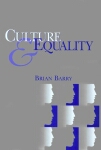the united kingdom is a useless country full of lazy peasants and overexcited bovine. nothing really froth-inducing. last week i saw a few wealthy and pompous geriatrics trying to load the bus without foregoing their ‘property’ by means of appropriating the bus driver with what obviously was not his. this society is beyond-me complicated. i am expected to respect their religion, ahem, their belief that ‘to not work is better, to undermine contractual obligations is best,’ but to be honest, i have yet to find any argument in favour of that relationship.
last week i attempted to provoke capitalism by inducing a third-party to contract on my behalf. it failed miserably, but not so fast. traditionally, ‘rights’ have had further complications, namely an ‘appendix’ euphemistically called ‘obligations.’ it seems to me that this part of the pond is more concerned with the former rather than the latter; the right to own chattel (the right to slavery), the right to be accommodated, the right to express criticism directed at ‘those dogs,’ the right to enter into agreements (only) with your peers, ad nauseum, et cetera. on the flip side, obligations can be categorized as being all those undertakings that require a detriment to the person to be expressed as some sort of consideration for the ultimate cause, humanity. in plebeian words, fuck hierarchical power relations.
we really are left with a minor conundrum here. the equation is set up so as to allow only a pretending few to benefit from the detriments of others. however, the victims of ‘life-between-jobs’ themselves feel further entitled to the luxuries of fame by victimization, as appropriated through ‘pity-channels’ and realized via more modern models of efficiency, fraud, identity theft, clandestine activity and gum chewing.
so while we all bitch, complain, take the dog out for a walk and scratch our society’s back (in return for a gyro cheque), the visiting foreigner, in true stereotypical style, finds out just how important it is to spit out rhetoric in favour of a better, less corrupt, more accountable and ostensibly-less-on-the-fence (?)united-kingdom(?). at the very least, the foreigner will have an audience who is willing to listen. and that is in itself enough to conclude with…
have you been introduced to the word “incentive” yet?
addendum:
law school is a bit of a bore, but that is because in our constitutional law course we are given propaganda vhs tapes to take home and watch while ‘high’ on the ‘prospect that law school will make you rich.’ similar indulgences and sheer decadence is attempted in our contract law course but with a slightly less obvious success rate.
i noticed that life behind bars (euphemism for a life behind the great wall of the university of birmingham) is fairly docile. most inmates favour silence and servitude. they are content with vilifying their masters insofar as they do not raise any suspicion as to their true intent. ulterior motives live behind a vail of passivity that only imperialism was able to justify as being incredibly unnecessary.
it seems to me that the populist march continues to favour the modern fascist beat of twenty-first century ‘nanny statism.’ it’s personal.



